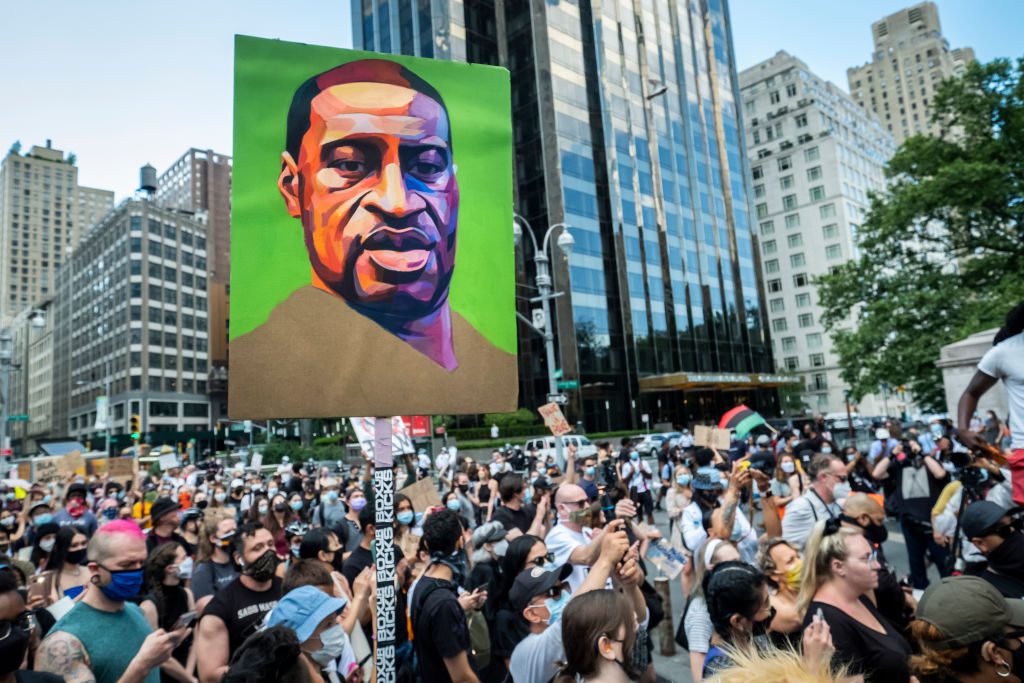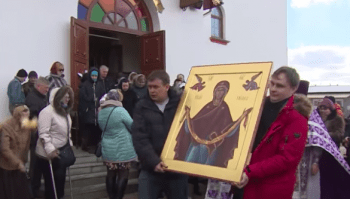Wokeness As Post-Protestantism

Collins: Right, so we now live in, as you put it, a post-Protestant US. But, if I understand your thesis correctly, you argue that the beliefs, mindsets and manners that animated earlier Protestantism have not been abandoned, but instead have been projected on to the political realm. A key transition you cite is the Social Gospel movement, which becomes more prominent during the 20th century. Then closer to our time Christianity gets stripped out altogether, and you are just left with social activism. Sin remains a preoccupation, but it has been redefined as a social sin, like bigotry and racism. Have I got that right?
Bottum: Yes. There’s an extraordinary point here. Walter Rauschenbusch [an American theologian and a key figure in the Social Gospel movement of the late 19th and early 20th centuries] lists six species of social sin. If you go through the list, they are exactly what radicals are objecting to now: bigotry, the ignorance of the uneducated, power, corruption, militarism and oppression. It lines up so perfectly with today’s agitation.
What we’re seeing now is an amplification of what I wrote about five years ago: an intense spiritual hunger that has no outlet. There’s no way to see people kneeling, or singing ‘Hands up, don’t shoot’, or swaying while they hold up candles, and avoid acknowledging that it’s driven by a spiritual desire. I perceived this when I wrote about Occupy Wall Street, and it’s become even more like this. It is an intense spiritual hunger that is manifesting itself more violently. Because to the post-Protestants, the world is an outrage and we are all sinners.
As a follow-up to The Anxious Age, I wrote an essay in 2014 in the Weekly Standard, called ‘The Spiritual Shape of Political Ideas’. The first idea I addressed was white guilt – that there is this inherent guiltiness that comes from being white. This notion has the same logical shape and the same psychological operation as Original Sin. The trouble is that, unlike Original Sin, there’s no salvation from white guilt. But the formal structure of white guilt and Original Sin is the same. How do you come to understand that you need salvation? By deeper and deeper appreciation of your sinfulness.
Similarly, there is ostracising and shunning. Cancel culture is just the latest and most virulent form of the religious notion of shunning, in which people are chased into further appreciation of their guiltiness. Two years ago, the Nation published a poem about an older panhandler giving advice to a younger one, about how to get people to give you money. The Twittermob went after that poem, on the grounds that the poet was a white man from Minnesota. And the magazine apologised, and the poet apologised for writing the poem. That’s what the shunning is looking for. If you profane, if you’re shunned outside the Temple, the only way back is to become fanatic, to convince people that you understand how guilty you are. And even then I’m not sure there’s any way back.
At the very least, one of the effects of the shunning is to frighten everyone into silence. Its purpose is to get people fired, to put people beyond the pale, to get them out of our sight. This is for a couple reasons. First, it is to ensure we are not infected by this sinfulness. And second, it is a public declaration of our power. It says, look how powerful we are, that we can do this to people.
More:
One of the great dangers is that religious ideas are in politics. The line that I use is that, if you believe that your ordinary political opponents are not merely mistaken, but are evil, you have ceased to do politics and begun to do religion.
Read it all. It’s very good.

You should read it in tandem with this classic James Lindsay and Mike Nayna essay, “Postmodern Religion and the Faith of Social Justice.”They argue that the best way to understand Social Justice Warriors is as members of a postmodern religious cult. Similarly, and crucially, the historian Yuri Slezkine writes that the best way to understand the Bolsheviks is as an apocalyptic millennial political cult.
I work with this critique in Live Not By Lies. Excerpt:
As the century wore on, educated Russians were aware of how far their agrarian country was falling behind modernizing, industrializing Europeans, both politically and economically. Younger Russians also keenly felt the shame of their liberal fathers’ failures to change the system. In the midst of Russia’s decline, Marxism appealed to restless young intellectuals who were sick of the old order, had lost faith in reforming it, and who were desperate to tear the system down and replace it with something entirely different.
Marxism stood for the future. Marxism stood for progress. The gospel of Marxism lit a fire in the minds of prerevolutionary Russian radicals. Their priests and the prophets were their intellectuals, who were “religious about being secular.” Writes historian Yuri Slezkine: “A conversion to socialism was a conversion to the intelligentsia, to a fusion of millenarian faith and lifelong learning.”
Far-left radicalism was initially spread among the intellectuals primarily through reading groups.Once you adopted the Marxist faith, everything else in life became illuminated. The intellectuals went into the world to preach this pseudo-religion to the workers. These missionaries, says Slezkine, made what religious believers would call prophetic revelations, and by appealing to hatred in their listeners’ hearts, called them to conversion.
Once they had captured Russia’s universities, the radicals took their gospel to the factories. Few of the workers were capable of understanding Marxist doctrine, but the missionaries taught it to those capable of translating the essentials into a form that ordinary people could grasp. These proselytizers spoke to the suffering of the people, to their sense of justice, to their often-justified resentment of their exploiters. The great famine of 1891–92 had laid bare the incompetence of the Russian ruling classes. The evangelists of Marxism issued forth prophetic revelations about the land of milk and honey awaiting the masses after the revolution swept away the ruling mandarins.
Most of the revolutionaries came from the privileged classes. Their parents ought to have known that this new political faith their children preached would, if realized, mean the collapse of the social order. Still, they did not reject their children. Writes Slezkine, “The ‘students’ were almost always abetted at home while still in school and almost never damned when they became revolutionaries.”4 Perhaps the mothers and fathers didn’t want to alienate their sons and daughters. Perhaps they too, after the experience of the terrible famine and the incompetent state’s inability to care for the starving, had lost faith in the system.
Pre-order Live Not By Lies here for September 29 delivery. We are living through the same kind of moment now. To fail to see the power of this post-Christian religion is to leave ourselves undefended. This is not something that can be argued with, nor is it something that can be lived with in peace. The “gospel” has been going to the factories (workplaces) for a long time, but this summer was when it really took off in popular culture. Prepare.
Subscribe for as little as $5/mo to start commenting on Rod’s blog.